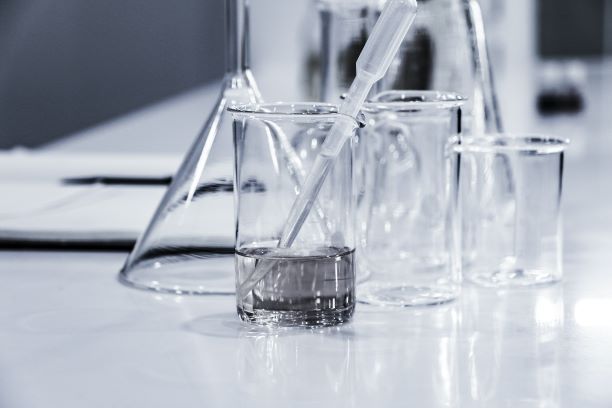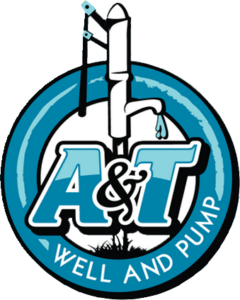Hard well water can be an expensive nuisance. Learn the signs of hard well water…
Are you one of the 15 million households in America getting your water from a private well? If so, it's your responsibility to make sure it is safe. For the health of your family, the water you use for drinking, cooking, cleaning, and bathing must be safe. The EPA doesn't regulate and oversee your well water quality as it does with public water supplies. This can make it challenging for a private well owner.
Contamination in private well water is a primary concern. When your water is contaminated, it can lead to a variety of health concerns. A&T Well and Pump can help when you think your well may be contaminated. There are 11 signs that you can either see, taste, or smell that can indicate contaminants have gotten into your water. In this article, we will describe each sign to be on the lookout for.
Well Water Contaminants
All kinds of things can make your well water unsafe--fluoride, organic chemicals, heavy metals, nitrate and nitrite, and microorganisms including bacteria, viruses, and parasites. Most of these contaminants get into the well water through groundwater movement, surface water seepage, and runoff. Here are some contaminants that can be found in private wells and how they can affect your health.
Fluoride
Fluoride can get into groundwater from weathering and leaching of fluoride-bearing minerals from rocks and sediments. In small quantities, fluoride is beneficial. But, too much fluoride can cause skeletal fluorosis, which causes pain and tenderness in bones and joints.
Organic Chemicals
Organic chemicals are found in inks, dyes, pesticides, paints, and disinfectants. These chemicals can enter groundwater and contaminate your private well through waste disposal, spills, and surface water runoff. High levels of these chemicals can cause damage to your kidneys, liver, circulatory system, nervous system, and reproductive system.
Heavy Metals
Ingesting high levels of heavy metals such as arsenic, chromium, copper, lead, and others can cause severe toxicity, liver, kidney, intestinal damage, anemia, and cancer. Heavy metals get into your well through groundwater movement, surface water seepage, and runoff.
Nitrate and Nitrite
These are in chemical fertilizers, human sewage, and animal waste. High levels of nitrate/nitrite in drinking water can cause methemoglobinemia or "blue baby syndrome" due to reducing the blood's ability to carry oxygen.
Microorganisms
Microorganisms include bacteria, viruses, and parasites. Consuming water that has these microorganisms can experience gastrointestinal illnesses and infections.

Visible Signs of Contaminated Well Water
Be on the watch for these signs that can indicate contamination in your well water:
Unclear and Opaque Water
Your water should be clear when it comes out of the faucet. If it is unclear, murky, or opaque, it could be contaminated. When water washes over dirt, clay salts, silt, or rust as it is taken out of the ground, it can carry the particles with it. If your water is unclear, you may have plumbing problems such as corroded or rusted pipes.
Green Stains on Sinks or Faucets
If you see green stains on your sinks and faucets, it could be due to a high amount of acid in your water. Acid contaminants (for example, iron, magnesium, copper, and zinc) can leach into your water through the pipes and other natural deposits because acid corrodes and weakens the pipes.
Brown or Red Stains on Sinks, Clothes, or Dishwasher
Stains that are brown or red can indicate dissolved iron in the well water. Iron deposits have health risks including damage to the heart, liver, and pancreas.
Scale or Scum
A scaley buildup or a scummy feeling from water may indicate calcium or magnesium. These contaminants are minerals that create hard water when there are high concentrations. A scale buildup looks like a white substance that clogs pipes, showerheads, and faucets.
Taste Signs of Contamination
When your water doesn't taste good, it's probably because there are problems. Here are some signs you can taste that can indicate your water could be contaminated.
Salty Taste
If your water has a salty taste, it could be due to high sodium or chloride content. High levels of sodium or chloride can be dangerous to people on low-sodium diets. It can also corrode and damage your plumbing.
Soapy Taste
A soapy taste to your water can mean that you have high levels of alkaline minerals in your water. Alkaline minerals include calcium, potassium, magnesium, and bicarbonate. At high levels, a person can experience gastrointestinal issues and skin irritation.
Metallic Taste
Acidic contaminants can make your water taste like metal. For instance, if your water tastes like pennies, the acidic contaminants in your water are too high.
Chemical Taste
If your water has a chemical taste to it, there could be chemicals or pesticides getting into your well. These chemicals can run off and seep into the groundwater from industrial areas and can have serious health risks.
Smell Signs of Contamination
There are different smells you should watch out for in your well water.
Rotten Egg Smell
A rotten egg smell makes it easy to determine if your water is contaminated. This smell indicates sulfur bacteria or hydrogen sulfide gas. Sulfur bacteria are naturally occurring, forming through decay and chemical reactions with soil and rocks.
Detergent Smell
If your water smells like laundry detergent, more than likely a septic tank has leaked into the well water. Septic tanks carry a host of bacteria and contamination that can harm your health.
Chlorine Smell
When your water smells like a swimming pool, it can be from excessive chlorination. Chlorine is used to treat water and a small amount helps your water; however, a lot of chlorine can be harmful.
Call A&T Well and Pump If You See Signs of Water Contamination
If you see, taste, or smell any of these signs that indicate your well water may be contaminated, call A&T Well and Pump. Our team of experienced professionals can diagnose the problem and help you solve it. Don't risk your family's health! Be on the lookout for signs of contamination, and call us today at (919) 291-4063 when you spot them!

